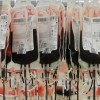Fighting crime with smart cities
Interview with
Thousands of people living on top of each other in a small place needing to  travel, work, socialise and stay healthy can cause problems ranging from congestion to crime. Richard Bellingham is the director of Strathclyde University's "Institute of Future Cities," which is seeking to improve the quality of human life in urban areas by using big data. He spoke to Ginny Smith about the Institute's goals...
travel, work, socialise and stay healthy can cause problems ranging from congestion to crime. Richard Bellingham is the director of Strathclyde University's "Institute of Future Cities," which is seeking to improve the quality of human life in urban areas by using big data. He spoke to Ginny Smith about the Institute's goals...
Richard - We're doing research in a number of areas. We're looking at how we make cities more sustainable. We're looking at how we make city systems more reliable. So, dealing with risk and resilience in terms of short terms shocks like disasters or extreme weather events. But also, longer term social and demographic impacts like the loss of populations or the loss of jobs. An example of that would be Detroit, where the shrinkage of the economy has led to the loss of 2/3 of its population, also looking at health and public policy issues such as crime for example.
Ginny - So, how exactly do you use the data you gathered to do something like predict and try and tackle crime?
Richard - What we do is we take hundreds of different data sets, both historic and live feeds and we'd look at the relationship between that data. We can correlate it to see if there are relationships and causal relationships. We also create what are called simulation models into intelligent agent modelling where we can look at the behaviour of how people, walking along the street might become a victim or indeed a criminal.
Ginny - So, you're looking at perhaps the areas that are most likely to have crime in them and that kind of thing.
Richard - Yeah. So, we know from previous research that there are some factors which are well-known such as the availability of alcohol, poverty. So, those are longer term factors. But we're also interested in the shorter term variation caused by things like the weather or the availability of transport or sporting events, or even what's on TV and then think about, "Okay, so what's the accuracy with which we can predict that a particular type of crime will occur on a given street within a given timeframe?" And then how do we make it less-likely that that would occur in the future?
Ginny - So, that was going to be my next question actually. Once you know that it's the right weather for crime or whatever, what do you do about it?
Richard - There are some factors for example like street lighting can be used to make it less-likely that particular types of crime occur. It's not true for all types of crime. Some crimes occur in the daylight. So, we know that street lighting doesn't work all the time. but we know things like using different colours and intensity of street lighting can influence behaviours and we know that also, in some cities, they've tried doing things like pulsing the street lights to indicate that the police are aware that something is happening and they're on their way. This actually been proved to be by and large just as effective as the presence of a police car once people understand that there's a relationship there.
Ginny - So, these are the crime fighting lampposts we've been talking about. You can actually change the colour of them to change people's behaviour. How does that work?
Richard - Well, if light is whiter for example, it means that it's actually easier to recognise people and that means people feel less secure about engaging in criminal behaviour if the light is brighter and whiter. Also, if the light is brighter, it means that we, the general public also feel more secure about using the streets in ways that are more constructive, more comfortable. If there are more people on the streets, it's actually less-likely that person to person crimes occur in the first place.
- Previous Personal pollution sensors
- Next From seeds to skyscrapers










Comments
Add a comment